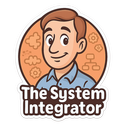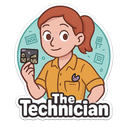inside the machine
Explore a computer's internal hardware components.
Your Learning Journey
Crack open the case and meet the 'Super Six'! Learn what's inside your computer, from the brainy CPU to the forgetful RAM, and discover how to save the planet from e-waste.
Low Stakes Knowledge Check
Module introduction
Have you ever wondered what’s actually going on inside your computer, phone, or games console? We often use these devices without thinking about how they work. This module is your chance to lift the bonnet and explore the engine inside. We’ll go on a journey from being a simple user of technology to becoming someone who understands it. This journey will take you from the basics of identifying physical parts to being able to confidently explain the role of the CPU, the importance of RAM, and how they work together to bring your software to life. By the end of this module, you will have the power to look at a computer's specifications and understand what they actually mean, making you a more informed and empowered user of the technology that shapes our world.
Why does this module matter?
Understanding the hardware inside your devices is more than just a technical skill; it's about digital empowerment. Knowing what the components do and why they matter helps you make smarter choices when buying new technology, troubleshoot problems more effectively, and appreciate the incredible engineering that powers our digital lives. It's the first step to moving from just using technology to truly understanding it.
1
For you
This module will help you develop several key computing personas:

The System Integrator: This persona is all about understanding how different parts work together to create a functional whole. In this module, you'll learn how the CPU, RAM, motherboard, and storage all interact to run a program, which is the core of being a System Integrator.

The Technician: The Technician connects abstract ideas to the physical world. This module is a perfect fit, as you'll be identifying the real, tangible hardware components of a computer system and learning about their specific, physical functions.

The Historian: To understand the technology of today, you need to appreciate the breakthroughs of the past. This persona helps you explore the evolution of hardware, understanding how we got from room-sized mainframes to the powerful devices we carry in our pockets.
2
For your future
The skills you learn in this module are the starting point for many exciting and in-demand careers. One of the most direct pathways is to become a IT Support Technician.
Career focus: IT Support Technicians are the backbone of any organisation. They are the expert problem-solvers who install, maintain, and repair computer systems and networks, ensuring that everyone in the company can work efficiently. They are the first line of defence when technical issues arise, diagnosing problems with both hardware and software.
Key Skills: This module builds the foundational hardware knowledge essential for this role. You will learn to identify core components like CPUs, RAM, and storage drives, and understand their functions – a critical skill for diagnosing why a computer might be running slowly or failing to start.
Interesting facts: The demand for IT support skills is constantly growing as almost every industry relies on technology. This career isn't just about fixing computers; it's a great stepping stone into more specialised fields like network engineering, database administration, or cybersecurity. Many IT support roles involve a lot of face-to-face interaction, making communication and problem-solving skills just as important as technical knowledge.
Our Learning Journey
Our journey through this module will be a hands-on exploration of the computer. We'll start by taking a look inside a real PC to identify its main parts and see how they're all connected by the motherboard. From there, we'll zoom in on the most important components, learning about the CPU as the 'brain', understanding the difference between temporary memory (RAM) and long-term storage, and exploring the different types of storage we use every day. Finally, we'll step back to see the bigger picture, investigating the hidden 'embedded' computers all around us and building a virtual PC to apply our new knowledge.
Last modified: January 12th, 2026





















